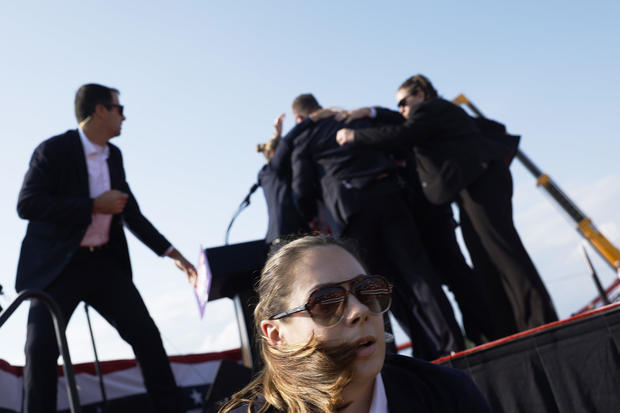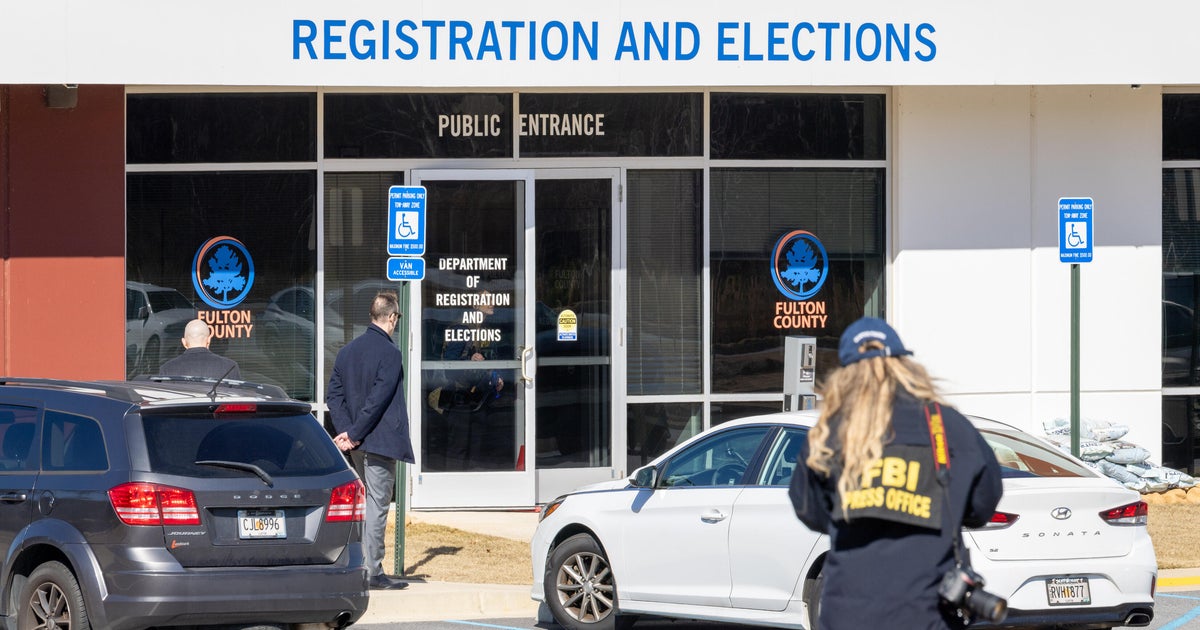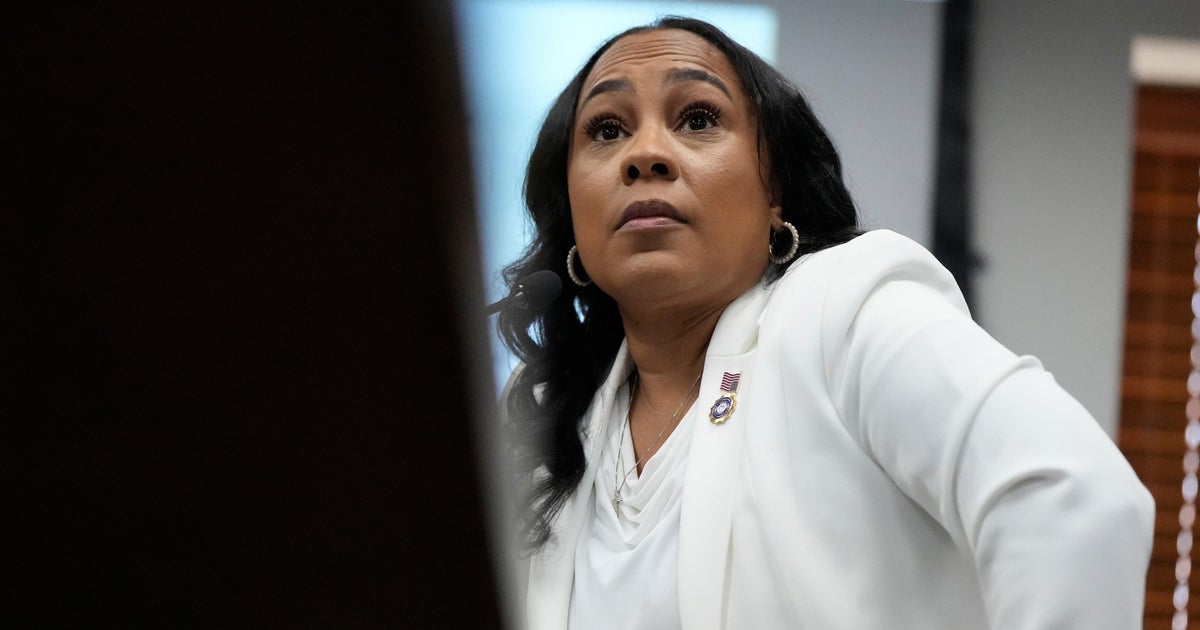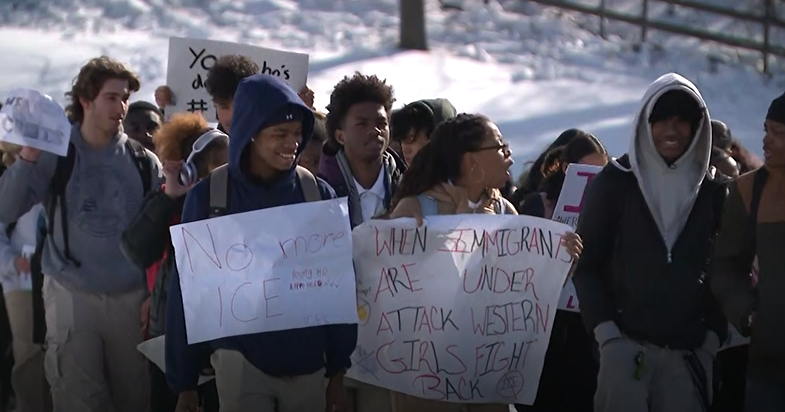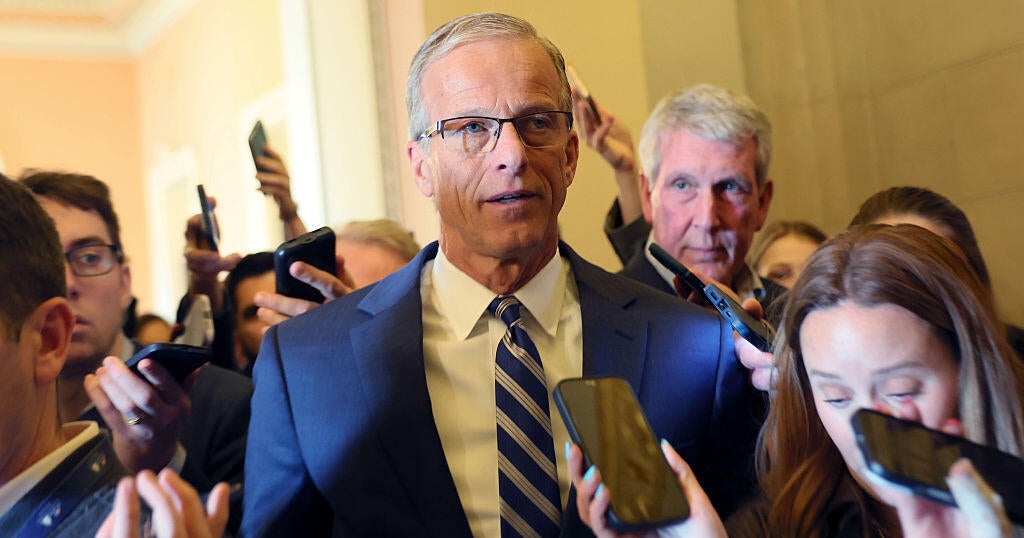House panel finds Trump assassination event "preventable" in interim report
Washington — The bipartisan House task force investigating the assassination attempt against former President Donald Trump found that the incident was "preventable," detailing in a report released early Monday that there were communication and planning shortcomings.
In the 53-page interim report, the panel outlined that "the evidence obtained by the Task Force to date shows the tragic and shocking events of July 13 were preventable and should not have happened."
The probe "clearly shows a lack of planning and coordination between the Secret Service and its law enforcement partners before the rally," the task force said, noting that the findings are preliminary.
House leaders announced the members of the bipartisan task force on July 29, after the House voted to establish the panel, who are tasked with looking into what went wrong on July 13, while making recommendations to prevent a similar attack from occurring. The panel is made up of seven Republicans and six Democrats. The lawmakers will submit a final report of its findings by Dec. 13, and the investigation is among several probes by lawmakers, law enforcement and federal agencies looking into the shooting.
Trump was speaking at a rally in Butler, Pennsylvania, on July 13 when a gunman opened fire, with a bullet grazing the former president's ear. A rally attendee was also killed and two others were injured. Secret Service snipers shot and killed the gunman, identified as 20-year-old Thomas Matthew Crooks.
The task force outlined in the report that it has received relevant information from other House committees, conducted 23 transcribed interviews with witnesses from state and local agencies, and obtained evidence in response to three subpoenas to federal, state and local agencies.
Among the panel's findings, the report found "inadequate planning and coordination" before the rally in Butler, noting that no meeting occurred between federal and local law enforcement on the day of the event, and alleging that responsibilities were not "effectively" verified by the Secret Service. The panel also noted that there wasn't a "unified command post" for communication between the Secret Service and state and local partners. And witnesses who participated in a walkthrough of the area days before the assassination attempt called it disorganized.
The lawmakers outline that "fragmented lines of communication" allowed the gunman to "evade law enforcement," climbing onto the roof of a nearby building and firing eight shots. And the report notes that "federal, state, and local law enforcement officers could have engaged Thomas Matthew Crooks at several pivotal moments."
Additionally, the report outlines how areas outside of the secure perimeter "were recognized as security risks," pointing to the building from which Crooks gained access to the roof. And despite the proximity to the road and sight of the stage, the report notes, the crowd that gathered near the building was not screened by Secret Service and other law enforcement.
Meanwhile, the panel said that state and local authorities near the building "did not have complete visual coverage of the area," and that "they understood their assignment to be overwatch of the rally site — not securing the AGR roof and property."
Since the July 13 shooting, there was another apparent assassination attempt against the former president. On Sept. 15, the Secret Service arrested a man with an AK-47-style weapon at Trump's Florida golf course who was 300-500 yards from the former president. The man, Ryan Wesley Routh, has been charged with attempted assassination of a political figure in addition to firearms charges.
House Speaker Mike Johnson said in a statement about the report on Monday that the security failures by Secret Service personnel "were shocking and inexcusable," and that "Congress will leave no stone unturned in pursuit of truth and justice for the victims of that fateful afternoon."
"The Task Force will continue to work tirelessly to ensure that a security failure of this magnitude can never happen again," Johnson said.

